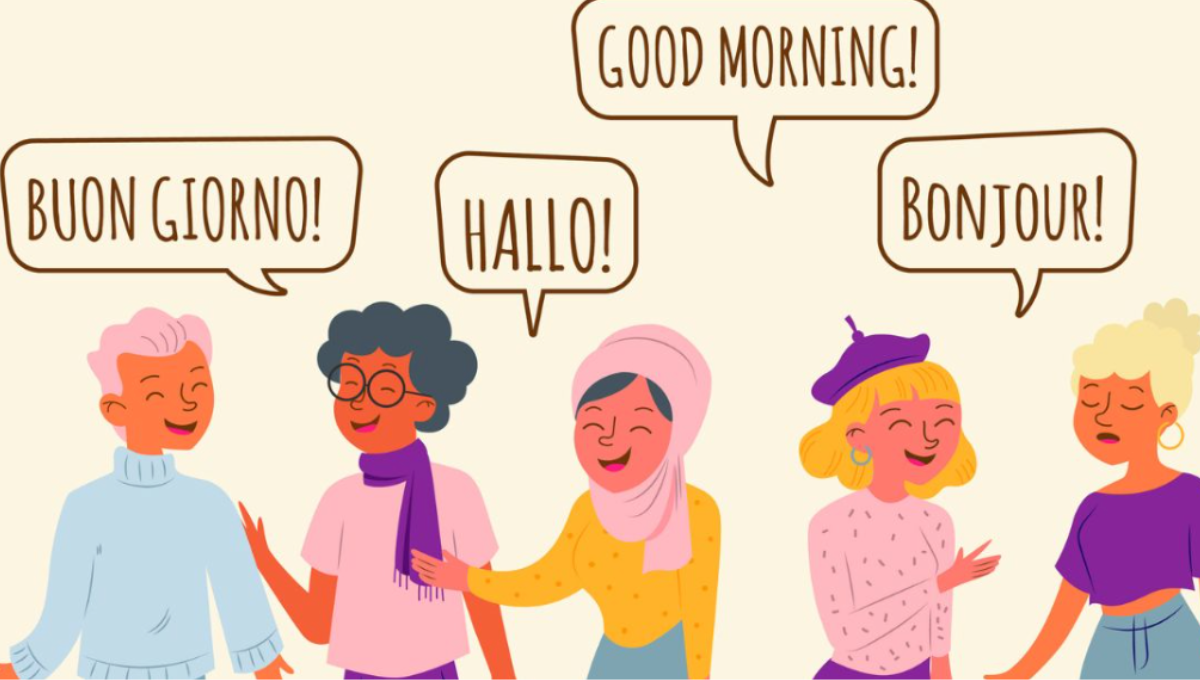Do you struggle to understand Italian conversations? Despite of seeking help from online resources you still feel stuck. If that is the case, it is time for you to learn Italian slang. It is high time for you to learn Italian online so that you do not feel confused and understand the Italian language easily.
Sometimes despite putting in all your efforts, you feel stuck and feel like you are missing out on something. If that is the case, it is high time for you to put your hands in Italian slang. These slang phrases will let you understand the Italian conversations better.
You can learn Italian slang by booking your lesson plans with italki. Italki is a well-established language learning platform with the best online Italian tutors to help you develop the required knowledge of the Italian language. Updated instructional practices will allow you to understand Italian verb conjugation, punctuation, and sentence formation. The biggest benefit is the availability of italki’s app to learn Italian to provide practical and theoretical exposure.
Now, before moving to Italian slang phrases, it is very important for you to be clear that why is it important to know and understand them?
Why do you need to know about Italian slang phrases?
No doubt, learning the formal Italian language is important as it gives you the ability to understand Italian textbooks, classroom teachings, and Italian writing pieces. But, it is not enough to know the formal language only.
In an informal setting, everyday speech is full of slang. Though these slang phrases are not included in study programs and course plans that doesn’t mean that they are not important.
The biggest reason for slang phrases not being included in the course and study plan is that they want the learners to develop a polished and proper way of speaking and writing Italian. But no one can deny the importance of Italian slang phrases as they help you to understand what native people say in informal settings.
The best part is that these slang phrases are limited in number. Same Italian slang phrases are used again and again. But the worst part is that these slang phrases just change at the drop of the hat. What’s in today can disappear tomorrow.
In this guide, we will try to cover those slang phrases that have stood up well over time. These slang phrases are informal. Want to learn more about the use of Italian slang phrases? Learn with italki and get your personalized language learning lessons.
Top 15 Italian Slang Words
Before starting the slang phrases, just keep in mind that the majority of these phrases are idiomatic. They have meanings that are metaphorical, which means that they should not be taken in literal terms.
1. Avere la testa tra le nuvole
Avere la testa tra le nuvole means “to have one’s head in the clouds”. This phrase is quite common in the English language. In English, it means when someone is distracted and distant. For example:
A: Sei stanco? (Are you tired?)
B: No, perché? (No, why?)
A: Hai la testa tra le nuvole! (You’ve got your head in the clouds!)
2. Prendere la palla al balzo
While prendere la palla al balzo, literally translates to “to take the ball at the bounce” this phrase is actually closer to “to take the bull by the horns.” This means that someone is taking control and getting an advantage from the opportunity.
Ho incontrato il capo d’azienda. Ho preso la palla al balzo, e ho chiesto per un lavoro.
(I met the boss of the company. I took advantage of the situation, and I asked for a job.)
3. Che palle!
che palle translates literally to “what balls!” but means “what a pain in the behind!”. In English, there is a similar phrase that means something is annoying and irritating. So it is very important to be careful with whom you share this slang phrase.
A: Ho perso il mio portafoglio e non posso uscire stasera.
(I lost my wallet and can’t go out tonight.)
B: Che palle! (What a pain!)
4. Amore a prima vista
It literally translates to “love at first sight” and defines a situation where people fall in love at their first encounter.
A: Quando ho incontrato Gianni, è stato amore a prima vista.
(When I met Gianni, it was love at first sight.)
B: Che bello! (How beautiful!)
You can learn to say I love you in Italian to express your love and affection to your love interest and the people close to you.
5. Un/una guastafeste
This slang is the combination of two Italian words: the verb guastare, which means “to spoil” or “to ruin,” and the word festa, which means “party”. In English, it means someone who ruins all the fun.
A: Viene Gianni al cinema stasera?
(Is Gianni coming to the movies tonight?)
B: No, è irritato e una guastafesta.
(No, he’s irritated and a party pooper.)
6. Basta
Basta means “enough.” In English, it means to stop any situation that is undesirable.
A: Gianni, sei sempre irritato! Perché non vuoi uscire con me?
(Gianni, you’re always so irritated. Why don’t you want to go out with me?)
B: Basta! Sono stanco perché lavoro troppo!
(That’s enough! I’m tired because I work too much!)
7. Cadere a fagiolo
Cadere means “to fall,” fagiolo means “bean,” and the phrase cadere a fagiolo (“to fall at a bean”) means the English expression “to happen at the right time.”
L’esame cade a fagiolo. So bene questa materia.
(The exam came at the right time. I knew the material well.)
8. Non fai scumbari
The phrase non fai scumbari means something along the lines of “stop embarrassing me”. It is a phrase commonly used when you find yourself in a situation of shame and embarrassment.
A: Hai cambiato le tue banchiere intime oggi?
(Did you change your underwear today?)
B: Basta, Mamma! Non fai scumbari!
(Enough, Mom! Don’t embarrass me!)
9. Boh!
Boh! means lack of knowledge about a subject. It can also mean a sort of disinterest in a conversation.
A: Quando viene Gianni a casa mia?
(When is Gianni coming to my place?)
B: Boh! (I don’t know [and I don’t really care].)
10. Figurati!
figurati is derived from the verb figurare which means “to be present” or “to appear.” This slang means ‘don’t worry about it’ or ‘it’s nothing’.
A: Mamma mia! Ho perso il mio portafoglio ancora. Non posso pagare il film!
(Oh, no! I lost my wallet again. I can’t pay for the movie!)
B: Figurati! Pago per te!
(Don’t worry about it! I’ll pay for you.)
This Italian slang phrase also means “not at all”, for example:
A: Ti disturbo?
(Am I disturbing you?)
B: Ma no, figurati!
(No, not at all!)
11. Magari!
Magari literally translates as “maybe”. It is used in an informal setting to show the desire for something that is not possible to happen or occur.
A: Forse Gianni cucina il pesce stasera.
(Maybe Gianni will cook fish tonight).
B: Magari! (If only!)
12. Avere le mani in pasta
Avere le mani in pasta literally means “having one’s fingers in the pie/pies,” and it refers to someone who is involved in someone else’s matters in either a positive or negative sense.
A: Come ha ottenuto Gianni quel posto nell’azienda?
(How did Gianni get that job at the company?)
B: Ha le mani in pasta… (He’s well connected…)
13. Mangiare cadaveri
Mangiare cadaveri literal translation is “to eat dead bodies,” but it means “to have bad breath.”
Lavati i denti! Mangi cadaveri!
(Brush your teeth! You have bad breath).
This phrase is not very common in Italian culture. Usually, native speakers use avere l’alitosi which means “to have bad breath.”
14. Dai!
Dai means to “give”. In English, it means “come on”. It can be used in many situations.
A: Non ho voglia di uscire stasera.
(I don’t want to go out tonight.)
B: Oh, Gianni. Dai! Ci divertiamo!
(Oh, Gianni. Come on! It’ll be fun!)
15. Meno male!
The literal translation of this slang is different from its actual meaning. Meno male literally translates to “less bad,” but means “Thank God”. It means to express relief and a moment of gratitude.
A: Ho trovato il mio portafoglio! (I found my wallet!)
B: Meno male! (Thank God!)
These are some of the major Italian slang phrases but there are hundreds of other slang phrases. You can join a course to learn informal Italian phrases and Italian idioms. These phrases are highly beneficial for you to have formal and informal conversations.

Find Your Perfect Teacher
At italki, you can find your Italian tutor from all qualified and experienced teachers. Now experience the excellent language learning journey!
Book a trial lesson
Conclusion
It is time for you to learn Italian slang phrases. Book your lessons with italki and start your learning journey with professional instructors with the best teaching practices and learning strategies.




















